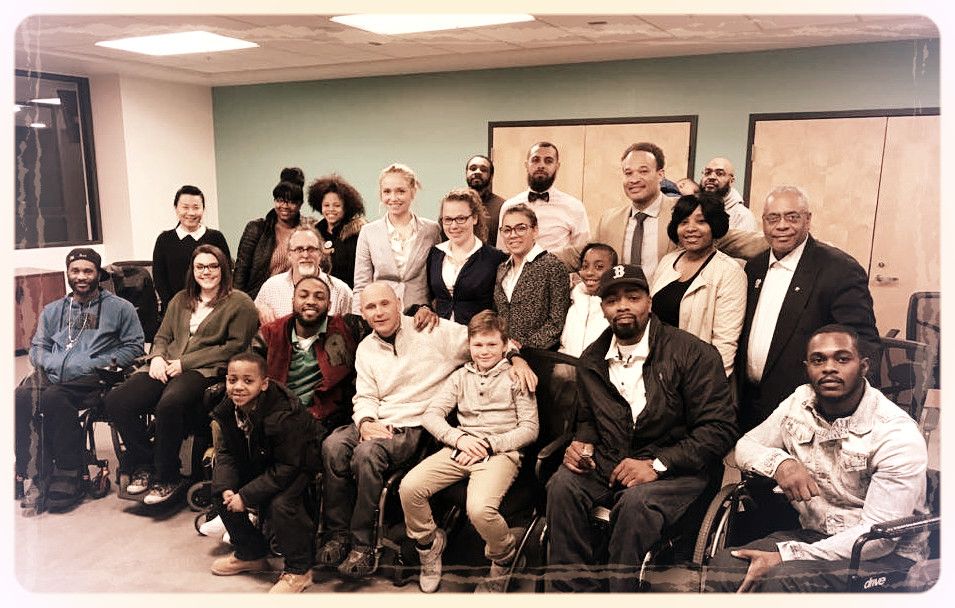May 9, 2025
This is a Team Game
Matthew Rodreick
Last week, I watched the Minnesota Timberwolves beat the LA Lakers in the first round of the NBA playoffs. For those who don’t follow the NBA, the Lakers were projected by just about everyone to dominate the series because they have two huge stars, one of whom (LeBron James) is arguably the greatest player in history. Despite that star power, the Timberwolves won the game I was watching (game 4) and - to the surprise of all the talking heads - went on to win the series.

Anthony Edwards, the Timberwolves star player.
After game 4, Anthony (Ant) Edwards, was asked the usual post-game questions about his excellent performance. He responded as he often does: by immediately heaping praise on his teammates, and calling out one or two of them as MVP of the game.
Edwards’ humility got me thinking about the larger narrative surrounding our love (obsession?) with individual heroes. We get their jerseys, follow them on social media, pin our hopes on our hero’s play in any given game, fight, political race, invention, discovery, and so on.
The Lakers were ‘supposed’ to win because they had the big, time-tested heroes. Meanwhile, here was Ant - a blossoming hero in his own right - giving credit to the team, the coach, and their entire staff. The Timberwolves won, not because they had a better hero, but because they had a better team. I’d argue that maybe they won because they had a better sense of what it means to be a team.
So here’s the thing. This whole effort to cure paralysis is a team game, not a hero’s journey. Everyone has a role to play. We’re in a tough but critical moment of ‘the SCI playoffs’ with our team’s future riding perilously on the outcome.
Mackenzie Wann, a fierce advocate who is also a quad, gives testimony about her injury, with fellow SCI advocate John Martinson looking on. Though this hearing took place for proposed legislation in Wisconsin, Mackenzie highlighted her intention to get an epidural stimulator from Minnesota, where legislation funded that treatment. Sharing your stories is a powerful way to remind people of the importance of these research funding bills. Watch Mackenzie’s testimony here.
We just lost over a third of all funding for SCI research, with more cuts on the horizon. We are also facing the potential loss of critical services and clinical support for our community. There is no hero waiting in the wings to come and save us. We are the saviors and also the ones who need saving, all wrapped up in one diverse collective. It’s time to join the game and play your role - whatever that may be: vocal advocate, noise maker, strategist, connector, coach and so on.
Murray Blackmore, PhD, testifies at a Wisconsin hearing about the efficacy of our proposed SCI research funding bill. Dr. Blackmore is both an SCI researcher and also the child of a parent with a spinal cord injury. Click the image to watch Murray's testimony.
Some of you may have a clear sense of your role. For you, now is the time to put aside your fears and double down on the work at hand. Some of you may not yet know your role. For you, now is the time to decide what you want to do and then take action. Some of you need to fundraise for the team, both by donating personally, but also by pulling others with ample resources into the fight. But make no mistake: this is and always has been a team game.
At the end of game 5 when the Timberwolves won the series, Rudy Gobert (their over 7 foot center who had a surprisingly historic performance) was asked the same postgame questions (How did you do it? What were you thinking? How did you win?). He said his team won because ‘these guys have had a lot of adversity in their lives…all the things these guys have gone through’ prepared them for this moment. Sound familiar?
Our team has seen adversity the likes of which Rudy Gobert can’t begin to fathom. If we can harness that strength and join together as a team, we will win.
Join us!
PS - As Jason mentioned yesterday, we are short on time to preserve our SCI research funding in Minnesota. A proposal to cut our annual funding from $3M/year down to $500k/year is making it’s way in the house. Download our one-sheeter for more info. Please contact the key representatives listed below and share a short message about how the SCI/TBI program — and the programs it has funded, like ESTAND — have supported you or your research and improved the lives of individuals with SCI.
Rep. Marion Rarick (R) – Co-Chair
rep.marion.rarick@house.mn.gov | 651-296-5063
Rep. Dan Wolgamott (DFL) – Co-Chair
rep.dan.wolgamott@house.mn.gov | 651-296-6612
Rep. Nathan Coulter (DFL) – Co-Vice Chair
rep.nathan.coulter@house.mn.gov | 651-296-4218
Rep. Erica Schwartz (R) – Co-Vice Chair
rep.erica.schwartz@house.mn.gov | 651-296-8634

















